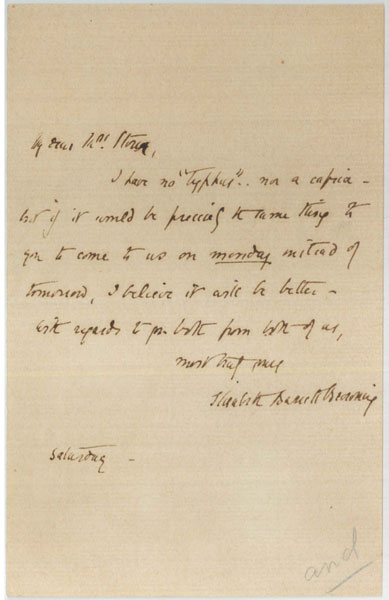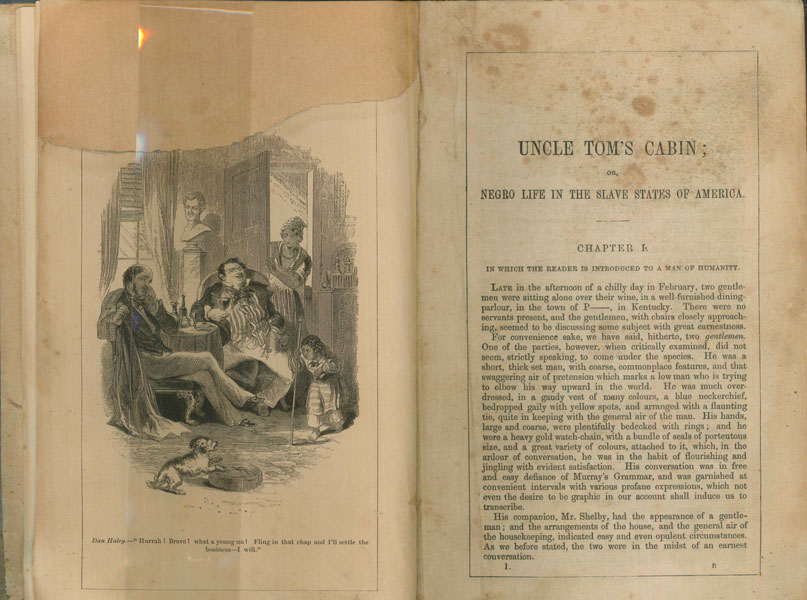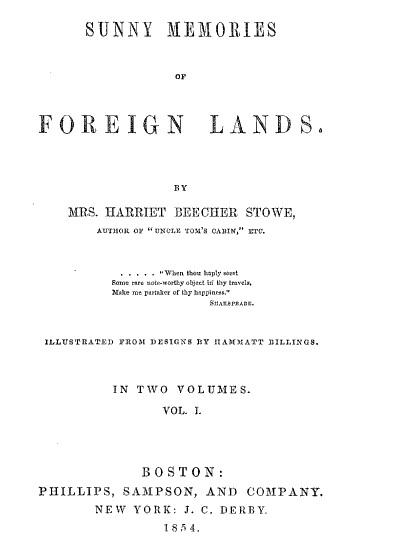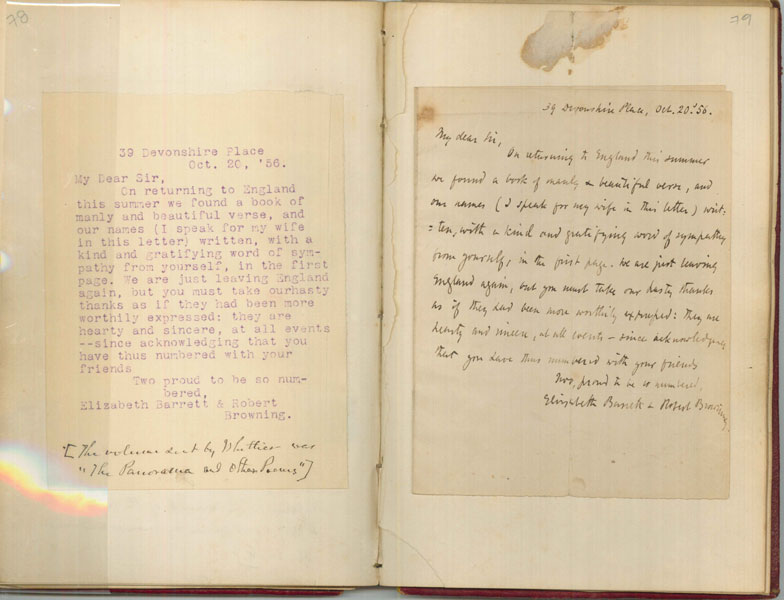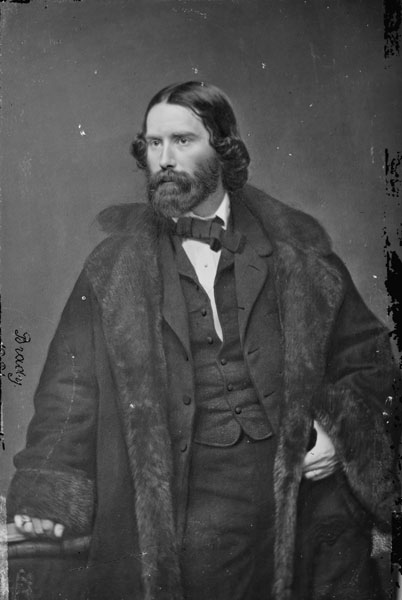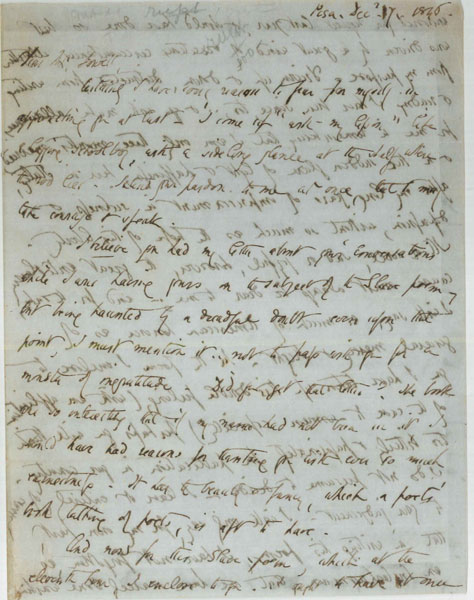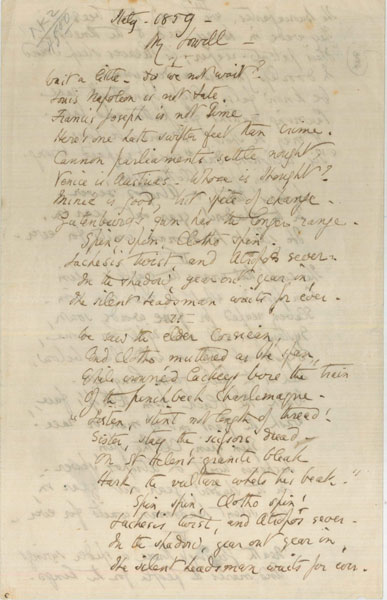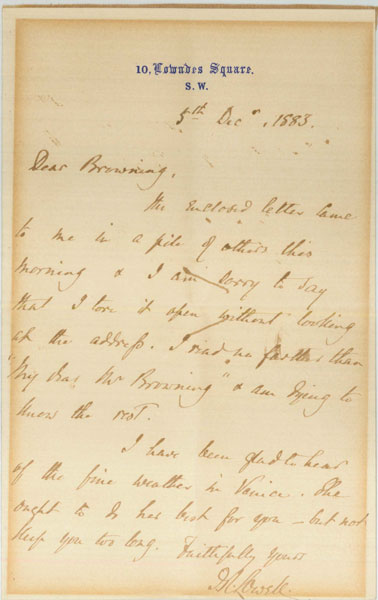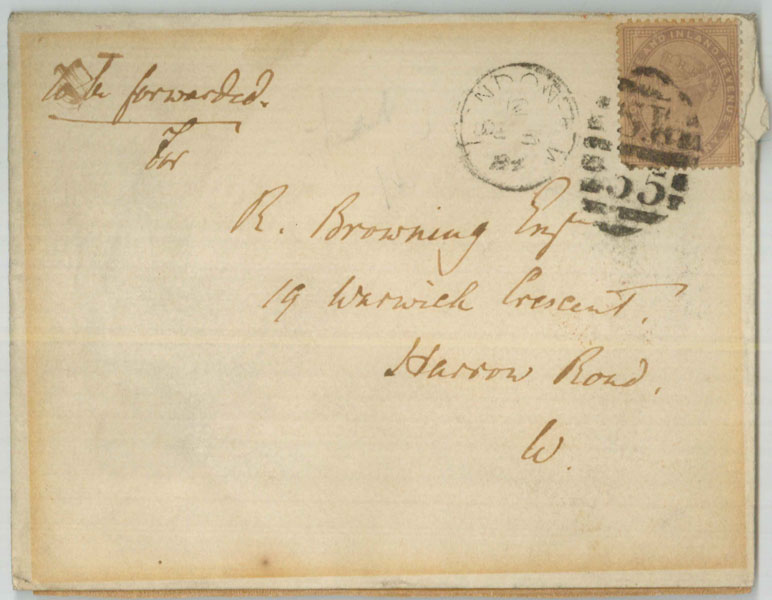The Armstrong Browning Library owns a small album of manuscripts, letters, and printed items that contains memorials to Annie Howard, daughter of Susan and John Tasker Howard. Annie died unexpectedly in Milan on 6 June 6 1860. The Howards, Harriet Beecher Stowe, and the Brownings had shared acquaintances in Italy during that period. The tributes in the album were written by three well-known nineteenth-century figures—the anti-slavery preacher, Henry Ward Beecher, his novelist sister, Harriet Beecher Stowe, and poet Elizabeth Barret Browning. The album contains two letters from Elizabeth Barrett Browning to Annie’s mother Susan and a copy of Barrett Browning’s “De Profundis,” written twenty years earlier following the drowning death of her dear brother, Edward. Stowe contributed a poem commemorating Annie to the album and a copy of Henry Ward Beecher’s funeral sermon was also included in the memorial album.
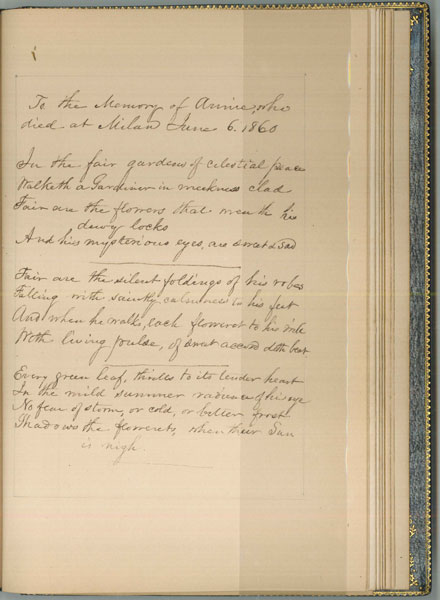 Harriet Beecher Stowe. “To the Memory of Annie, who died at Milan June 6. 1860.” In the Annie Howard Memorial Album. Autograph Manuscript. [1860].
Harriet Beecher Stowe. “To the Memory of Annie, who died at Milan June 6. 1860.” In the Annie Howard Memorial Album. Autograph Manuscript. [1860].
The two letters from Elizabeth Barrett Browning are beautiful expressions of condolences on the death of Annie.
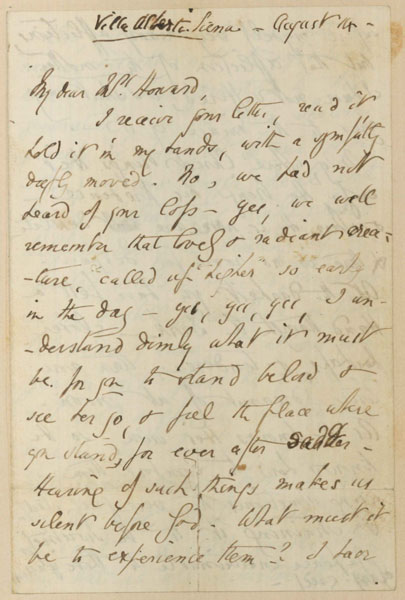
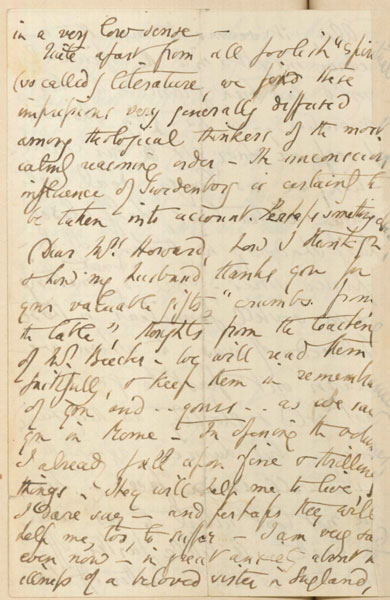
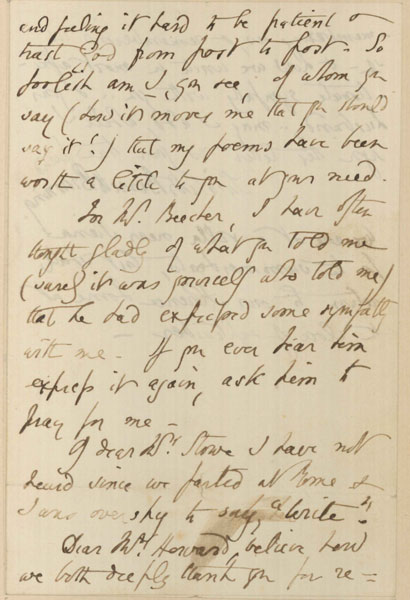
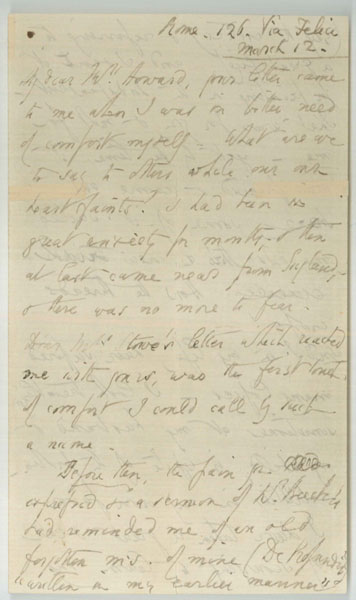 Letter from Elizabeth Barrett Browning to Susan Howard. 14 August [1860].
Letter from Elizabeth Barrett Browning to Susan Howard. 14 August [1860].
Excerpts from the letter:
Villa Alberti, Siena— August 14—
My dear Mrs Howard
I receive your letter, read it, hold it in my hands, with a sympathy deeply moved. . . . Hearing of such things makes us silent before God. What must it be to experience them?—I have suffered myself very heavy afflictions, but the affliction of the mother I have not suffered, & I shut my eyes to the image of it—.
Only, where Christ brings His cross He brings his presence—& where He is, none are desolate—& there is no room for despair. At the darkest you have felt a Hand through the Dark—closer perhaps, & tenderer, than any touch dreamt of at noon. As He knows His own, so He knows how to comfort them—using sometimes the very grief itself, & straining it to the sweetness of a peace unattainable to those ignorant of any grief—
. . . we write in most affectionate sympathy with you .. & your husband, .. may I add, while I sign this letter as your true friend
Elizabeth Barrett Browning.
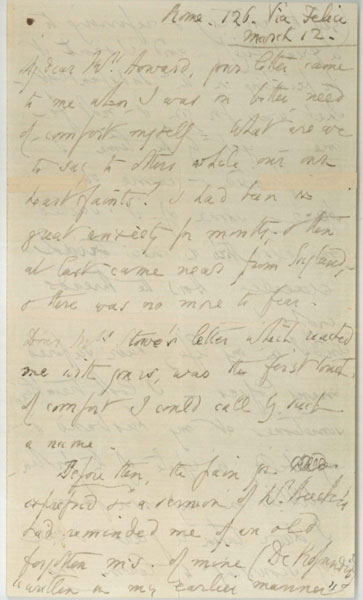
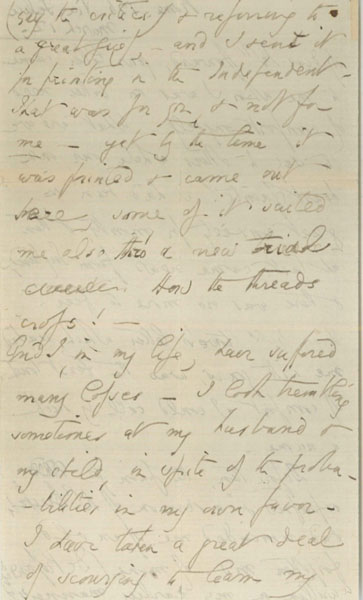
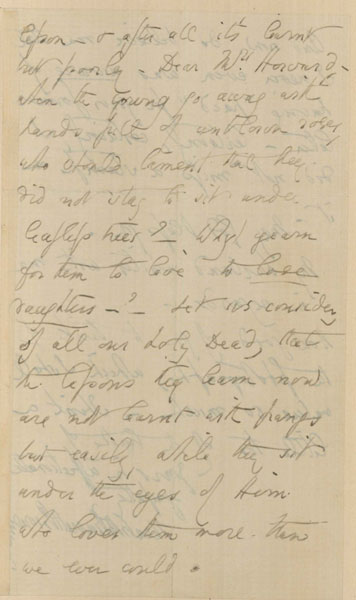
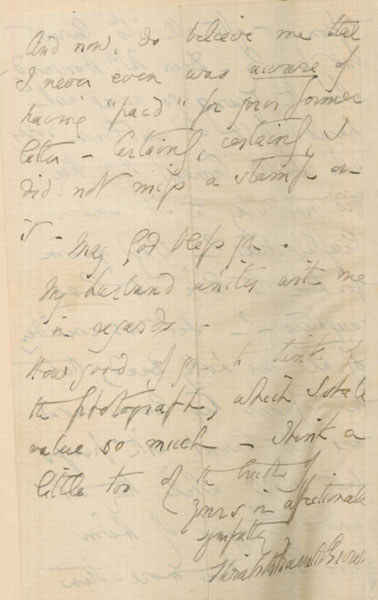
Letter from Elizabeth Barrett Browning to Susan Howard. 12 March [1861].
Elizabeth, who had just lost her sister, Henrietta, expresses her sympathy for Susan Howard in these excerpts from the letter:
Rome. 126. Via Felice
March 12.
My dear Mrs Howard, your letter came to me when I was in bitter need of comfort myself—What are we to say to others while our own heart faints? I had been in great anxiety for months, —& then at last came news from England, —& there was no more to fear. . . .
Before then, the pain you expressed & a sermon of Mr Beecher’s had reminded me of an old forgotten m-s. of mine (De Profundis) “written in my earlier manner” (say the critics) & referring to a great grief, —and I sent it for printing in the Independent- That was for you, & not for me—yet by the time it was printed & came out here, some of it sailed me also thro’ a new trial. How the threads cross! —
. . . Dear Mrs Howard—when the young go away with hands full of unblown roses, who should lament that they did not stay to sit under leafless trees? —Why yearn for them to live to lose daughters?-Let us consider, of all our holy Dead, that the lessons they learn now are not learnt with pangs but easily, while they sit under the eyes of Him who loves them more than we ever could. . . .
Yours in affectionate sympathy
Elizabeth Barrett Browning.
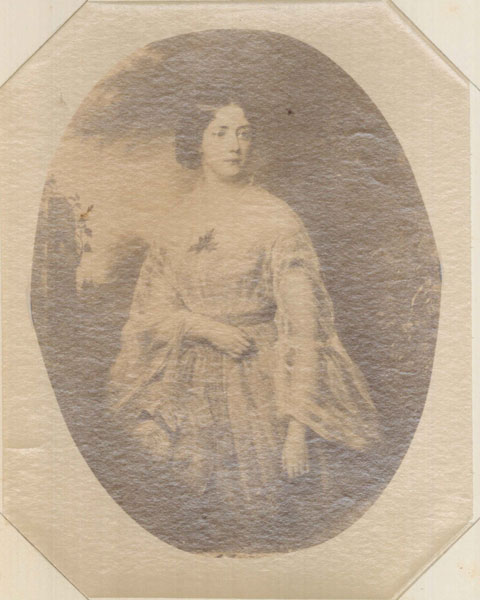 Photograph of a painting of Annie S. Howard,
Photograph of a painting of Annie S. Howard,
daughter of Susan and John Tasker Howard.
Letter from Robert Browning to Edward Oliver Wolcott.














